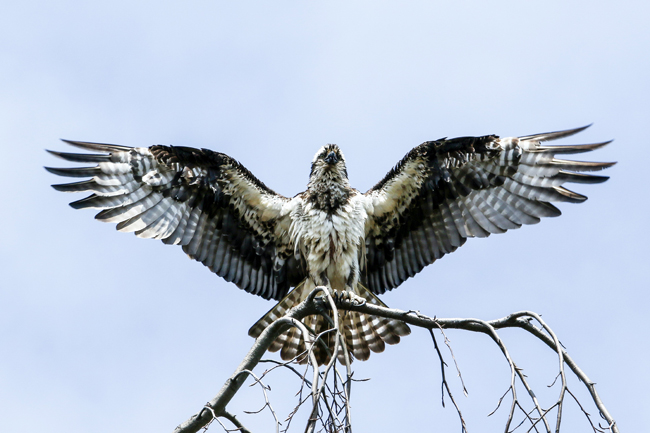Photo: The Community Science LI webinar featuring oysters highlighted Seatucks’s Half Shells for Habitat program, Oyster Bay Cold Spring Harbor Protection Committee’s oyster gardening program, and Cornell Cooperative Extension’s Suffolk Project in Aquaculture Training.
Contact:
Jimena Perez-Viscasillas, NYSG Long Island Sound Study Outreach Coordinator, E: jbp255@cornell.edu, P: (631) 632-8730
NYSG’s successful Community Science LI webinar series of 2021 continued in 2022, connecting the public with the local environment through participatory science
Stony Brook, NY, March 23, 2023 - Participating in community science (participatory science) is an easy, fun, and interesting way for the general public to contribute to local environmental management while engaging in individual environmental stewardship. New York Sea Grant and the Seatuck Environmental Association first hosted Community Science LI in 2021 to encourage local stewardship through wildlife education and engagement in participatory science. The monthly online series hosts researchers and local environmental and resource managers to discuss the natural history of a species and share opportunities for volunteers to get involved in local monitoring programs.
In 2022, partners from other Long Island estuary programs joined the Community Science LI outreach effort, helping to organize and host the series’ second iteration, which ran from July through November. Webinars in 2022 featured monitoring programs for eelgrass, oysters, sharks, Long Island mammals, the invasive spotted lanternfly, ospreys, and eagles. More than 210 total participants joined the workshops, with many excited to ask questions about the featured animals and share their observations with guest speakers.
More than 210 total participants joined the workshops, with many excited to ask questions about the featured animals and share their observations with guest speakers.
The successful launch and continuation of the Community Science LI webinar series promotes local environmental education and engagement by providing a platform for resource managers to talk about wildlife conservation and how people can get involved in monitoring programs near to them.
Partners:
• Seatuck Environmental Association
• Peconic Estuary Partnership
• South Shore Estuary Reserve
Funding: Long Island Sound Study program

An educator attending several of the Community Science LI webinars, including one on osprey and eagle monitoring, used the series to discuss different ways to collect data with a research class. Credit: Doug Kelley, Unsplash
More Info: New York Sea Grant
New York Sea Grant (NYSG), a cooperative program of Cornell University
and the State University of New York (SUNY), is one of 34 university-based
programs under the National Oceanic and Atmospheric Administration’s
National Sea Grant College Program.
Since 1971, NYSG has represented a statewide network of integrated
research, education and extension services promoting coastal community
economic vitality, environmental sustainability and citizen awareness
and understanding about the State’s marine and Great Lakes resources.
Through NYSG’s efforts, the combined talents of university scientists
and extension specialists help develop and transfer science-based
information to many coastal user groups—businesses and industries,
federal, state and local government decision-makers and agency managers,
educators, the media and the interested public.
The program maintains Great Lakes offices at Cornell University, SUNY
Buffalo, SUNY Oswego and the Wayne County Cooperative Extension office
in Newark. In the State's marine waters, NYSG has offices at Stony Brook
University in Long Island, Brooklyn College and Cornell Cooperative
Extension in NYC and Kingston in the Hudson Valley.
For updates on Sea Grant activities: www.nyseagrant.org has RSS, Facebook, Twitter, Instagram, and YouTube links. NYSG offers a free e-list sign up via www.nyseagrant.org/nycoastlines for its flagship publication, NY Coastlines/Currents, which is published quarterly.